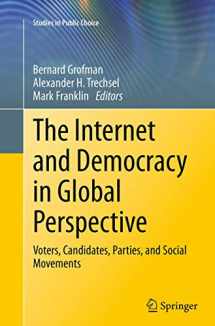
The Internet and Democracy in Global Perspective: Voters, Candidates, Parties, and Social Movements (Studies in Public Choice, 31)
Book details
Summary
Description
This volume provides an important update to our current understanding of politics and the internet in a variety of new contexts, both geographically and institutionally. The subject of e-democracy has morphed over the years from speculative and optimistic accounts of a future heightened direct citizen involvement in political decision-making and an increasingly withered state apparatus, to more prosaic investigations of party and governmental website content and micro level analyses of voters’ online activities. Rather than levelling the communications and participation playing field, most studies concluded that existing patterns of bias and power distribution were being repeated online, with the one exception of a genuine change in the potential for protest and e-activism. Across all of these accounts, the question remains whether the internet is a levelling communication tool that elevates the profile of marginalised players in the political system, or whether it is a medium that simply reinforces existing power and participatory biases. While employing case studies from various global perspectives, this book investigates the role of digital media and competitive advantage, campaigns and the effect of social media, online communication as way of fomenting nonviolent revolutions and the undeniable and important role of the internet on democracy around the world.


We would LOVE it if you could help us and other readers by reviewing the book
Book review



